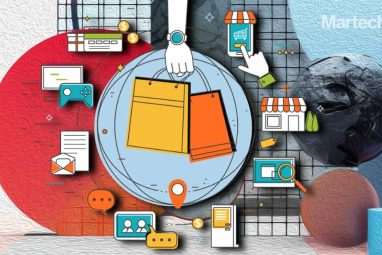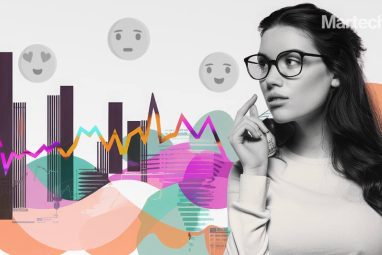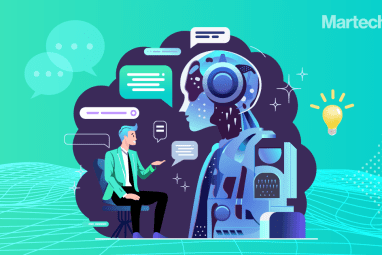How Real is Artificial Intelligence for Customer Experience
Today, technology has impacted the world. And any organisation that wants to put across a strategic, forward-thinking perspective is judged by the emphasis they place on technology and Artificial Intelligence. For a lot of us, the first brush with AI and machines was with movies like Stanley Kubrick’s – 2001: A Space Odyssey. Most people […]
Today, technology has impacted the world. And any organisation that wants to put across a strategic, forward-thinking perspective is judged by the emphasis they place on technology and Artificial Intelligence.
For a lot of us, the first brush with AI and machines was with movies like Stanley Kubrick’s – 2001: A Space Odyssey. Most people will distinctly recollect the scene where Hal 9000 disobeys the astronaut on his ship when he realises that they want to disconnect him. Hal 9000 says, “I’m sorry Dave. I’m afraid I can’t do that” and then kills the astronauts, making people believe that things can go horribly wrong. The AI story was further propagated by the Terminator series and movies like Steven Spielberg’s – ‘A.I.’ and Spike Jonze’s – ‘Her’, starring the gorgeous Scarlett Johansson as a ‘virtual’ Samantha.
The term – Artificial Intelligence (AI) has been around since the 1950s. It was first discussed by John McCarthy and Marvin Minsky at a Dartmouth Summer Conference involving
Mathematics, Game Theory and Logic. Though its presence has only been seen since 2007 when iPhone, Facebook and Amazon Web Services pioneered mobile, social and web platforms. Cut to circa 2018, and AI is everywhere. It is in our mobiles, cars, hospitals, banks, retail shops, and media, everywhere.
Also Read: Immersive Technology Makes for Richer Customer Experience
So, what does AI entail? Broadly AI is – Logic-based – Indicative Logic Programming (ILP), Robotic Process Automation (RPA), and Fuzy Systems. AI is Knowledge-based – Probabilistic Methods and Machine Learning (ML). It includes Bayesian Networks, Neural Networks and Natural Language Processing (NLP). It embodies intelligence using Affective Computing, Distributed Artificial Intelligence and Deep Learning Algorithms. It also includes Computer Vision and Sensor Fusion. Whoa! Don’t stop reading! This is where the heavy-duty jargon ends.
To demystify the role of AI, let’s narrow down the funnel and consider what it can do for a marketer. AI-driven marketing programs can lead to
- Improvement in the average sales cycle.
- Increase in Cross-sell and Up-sell revenue.
- Better return on marketing investments.
- Lower cost of customer service.
- Better customer experience.
With recent strides in technology, customer experiences will be analytics and data-driven. These will not be ‘visible’, but we will certainly ‘feel’ them. AI will result in more intuition driven, man plus machine interaction. It will drive more meaningful use of big data. AI will lead to more immersive and wholesome customer experience.
Also Read: Omnichannel Programmatic is The Way Ahead in 2019
But how exactly will all this happen? How will it enhance customer experience? How will it deliver on the above mentioned KPIs? So many questions to answer. Simply put, AI will –
- Mine text data at scale.
- Find better and real-time insights from video, images and voice.
- Provide more sophisticated and actionable insights.
- Add a narrative to petabytes of data.
- Help marketers do better digital advertising, cross-device targeting, using machine learning and deep learning.
- Play a huge role in personalising loyalty programs for Retails, Hotels, Airlines, etc. Besides this, it is already playing a significant role in enhancing the retail experience. Amazon Go and Alibaba’s Hema retail chain being prime examples.
- Help in devising next best products/service offerings also called product recommenders. Amazon uses this very effectively. According to them, one in twenty of their recommendations is bought by customers. Considering that these twenty are picked from millions of products, it is an amazing achievement.
- Help in automated targeting, attendance tracking, analysing and optimising marketing campaigns, dynamic content and smart tagging.
Also Read: Top 10 Applications of AI in Marketing
Incorporating AI in the marketing technology stack will result in measurable financial benefits. It will also enhance the customer experience, not to mention the brand differentiation that this will create.
A Gartner Research indicates that in a few years, the biggest differentiation between products/services will be customer experience, an overwhelming 89% concur. It also rather boldly, goes on to say that 85% of customer relationships will be managed without human intervention.
The big five – Google, Facebook, Apple, Microsoft and Amazon are investing heavily in AI and are at the bleeding edge. Google has staff research groups like Google Brain and DeepMind, and Facebook has FAIR – Facebook AI research and FBLearner. Alexa, Siri, Cortana are slowly but surely becoming a part of our daily lives.
Does all this mean that a lot of customer experience operations teams will be out of a job? The answer is both a yes and a no. Certain kind of jobs will get automated. However, human intelligence will always be paramount. As Facebook’s former head of AI, Yann LeCun, puts it: “All you’re seeing now — all these feats of AI like self-driving cars, interpreting medical images, beating the world champion at Go and so on — these are very narrow intelligences, and they’re really trained for a particular purpose . . . In particular areas, machines have superhuman performance, but in terms of general intelligence AI is not even close to a rat.”






